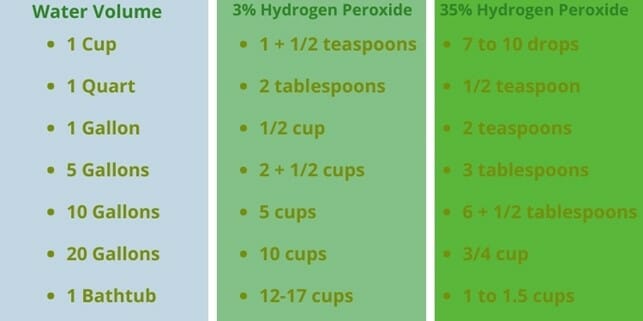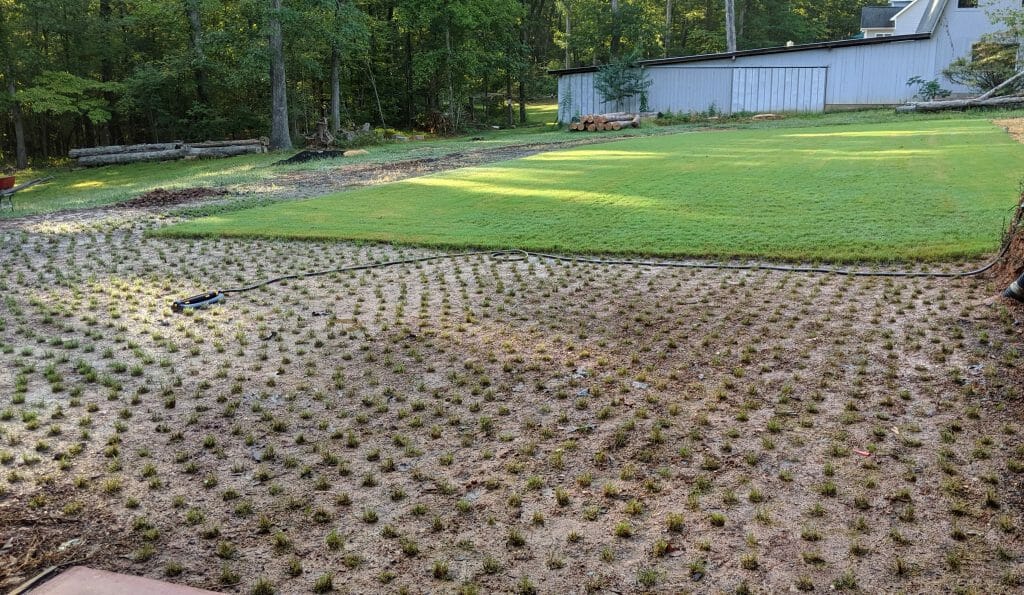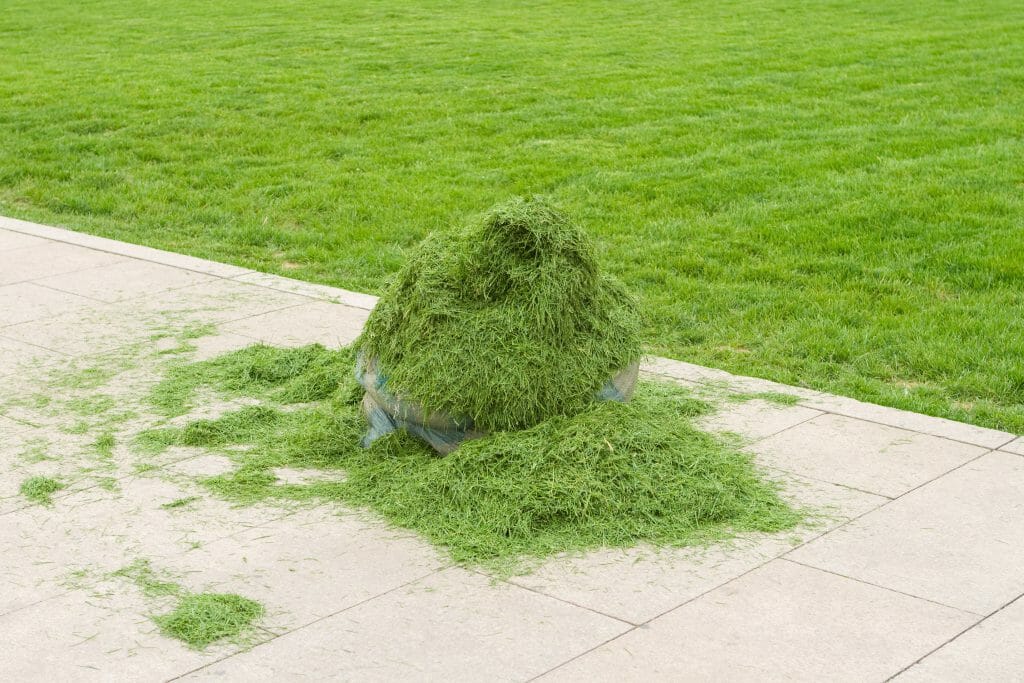Sterilizing your soil with hydrogen peroxide can be beneficial to your plants. It’s especially useful in controlling any fungus diseases that may be present and that are causing the roots of your plants to rot and die.
Let’s discuss all the benefits of using hydrogen peroxide to sterilize your soil and the best way to go about it.
What Is Hydrogen Peroxide
Hydrogen peroxide is a colorless liquid often used in the household for cleaning and other purposes. It’s composition is actually water (H2O) with an extra molecule of oxygen. Therefore, it’s formula is H2O2.
It’s also commonly used as a bleaching agent and is a mild antiseptic.
Although hydrogen peroxide is a chemical compound, it is found naturally in raindrops. This is one of the reasons it’s beneficial to your plants. I’m quite sure you’ve noticed that your garden always looks better after it’s received some rain rather than a watering from the tap.
Benefits Of Using Hydrogen Peroxide
There are a number of benefits of sterlizing your soil with hydrogen peroxide if used in the right concentration. Here are just a few.
1. Soil Aeration
It’s important for your soil to be aerated sufficiently to allow the roots of your plants to grow well. The little air pockets in the soil allow nutrients and oxygen to get to the roots of your plants.
Poorly aerated soil also encourages diseases that could be detrimental to your plants. Hydrogen peroxide adds additional oxygen to the soil. This allows your roots to grow healthy and strong that in turn, allows them to supply the required nutrients to the plant.
2. Treats Root Rot
Root rot causes the roots of your plants to die and this is more common in poorly aerated soil that becomes water-logged because the water has nowhere to go.
You’ll also find that root rot is hard to diagnose. By the time any signs are visible in your plants, it may already be too late. Common symptoms of root rot in plants is yellowing leaves and dying branches. This is because the roots are unable to provide nutrients to the plants.
3. Hydrogen Peroxide Can Disinfect Your Potting Mix As Well
If you keep re-using potting mix, it’s a good idea to treat it with hydrogen peroxide in between uses. This will ensure any bacteria or fungal spores in the mix are eliminated.
The same applies to compost that can harbor bacteria, fungus or other pests. You can make up an effective mixture by diluting 2 teaspoons of 35% hydrogen peroxide in 1 gallon of water.
On the other hand, if you’re using 3% hydrogen peroxide, you can mix two and a half cups into 5 gallons of water.
Here’s a handy chart that shows the recommended solutions of hydrogen peroxide to water whether you’re using a 3% or 35% hydrogen peroxide solution.
Generally, it’s recommended that you start by using the far safer 3% solution of hydrogen peroxide
4. Fights Common Fungal Infections
Hydrogen peroxide can effectively treat many common fungus diseases such as powdery mildew. This is great news if you like growing vegetables such as pumpkins, squash and peas and beans that are susceptible to such diseases.
5. Kill Pests Such As Aphids And Other Sap-Suckers
Hydrogen peroxide is a much safer way to kill sap-sucking insects such as aphids than using store-bought insecticides. And, it benefits your plants as well. Just a simple 1% solution of hydrogen peroxide in water, sprayed on your plants will do the trick.
How To Sterilize Your Soil With Hydrogen Peroxide
Now that you know all the benefits of using hydrogen peroxide to sterilize your soil, you need to know how to do it correctly. Here are the steps that you need to take.
1. Create The Right Mixture
The most crucial step in treating your soil with hydrogen peroxide is to get the mixture right. The optimum solution is 1/2 cup of 3% hydrogen peroxide mixture to 1 gallon of water.
2. Soak The Soil Around The Roots Of Your Plants
Remember, you’re treating the soil, so the mixture should be applied directly to the soil around the roots of your plants. You should do this in the evening after the heat of the day has passed.
Make sure that you thoroughly soak the soil around your plants and let the water sit overnight.
Safety Tips
Because hydrogen peroxide is a chemical compound, there are certain safety considerations you should observe.
1. Store In A Cool Place
Hydrogen peroxide is an unstable compound and can explode if it’s exposed to too much heat. Therefore, you should store it in a cool, dark place away from heat or direct sunlight.
2. Wear Rubber Gloves
Make sure you wear rubber gloves when making up your hydrogen peroxide solution to avoid getting the undiluted product onto your skin.
3. Keep Away From Pets And Children
Hydrogen peroxide should never be swallowed or ingested. Therefore, make sure you keep it well away from pets and children.
Frequently Asked Questions:
Does hydrogen peroxide kill beneficial bacteria in soil?
Yes, hydrogen peroxide will kill all bacteria in the soil – the good and the bad.
Is hydrogen peroxide good for plants?
Yes, it releases oxygen into the soil and helps to control any fungus that may be present. It also aerates the soil which allows the plant roots to take up nutrients more readily.
Will hydrogen peroxide kill ants?
Hydrogen peroxide is fatal to ants, click here to learn more about getting rid of ants.
Final Thoughts
Sterilizing your soil with hydrogen peroxide can have many benefits. It not only aerates the soil but also kills bacteria and fungal diseases such as root rot.
It’s important, however, to ensure that you get the mixture right as too high a concentration of hydrogen peroxide can damage your plants if accidentally sprayed on the foliage. On the other hand, a weak solution sprayed on the plants can actually benefit them.
Remember, when mixing up your hydrogen peroxide, less is usually best. If you’re using it for the first time, stick to the 3% solutions and store the bottle in a cool, dark place away from children and pets.
Have you used hydrogen peroxide successfully in your garden? Let us know in the comments below.






